

Our sessions are not based around times on the clock (except for our start and finish times).
We value children’s engagement in their learning so aim to provide long periods of uninterrupted time for them to do this.
We know that children benefit from a predictable and consistent routine so our sessions look something like this
9am – 9.10am
Children arrive and settle with their parents
9.10am – 11.30
Parents leave.
Children explore, engage, discover and connect.
Opportunities are provided inside and outside and children can freely flow between both areas as their interest takes them
Small group experiences are offered during this time for children who are interested, based on the needs and interests of the children. These may be science, art, sustainability, literacy (story, song), nature, music, etc cultural based experiences
A table is set up until 11-15am for children to have their snack with a small group of others when they are hungry.
11.30 – 12noon
Children will be engaged in tidying the indoor and outdoor environment, packing way their belongings, reflecting on the day and sharing stories and songs before being collected by their parents.
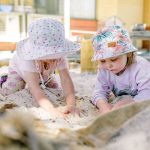
Research in brain development has taught us that play shapes the structural design of the brain. Play also provides active exploration that assists in building and strengthening brain pathways. When young children play they are allowed to explore, identify, negotiate, take risks and create meaning, children who engage in these experiences are more likely to have well-developed memory skills, language development, and are able to regulate their behaviour, which leads to enhanced school adjustment and academic learning. (Barblett, L. (2010). Why play-based learning? Every Child, 16(3), 4-5.)
Educators plan the environment to include a variety of provocations and invitations, based on children’s wonderings and needs and respond in the moment to the way children engage with those opportunities. Learning in enhanced through engagement with others in play
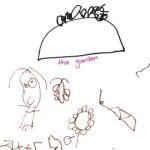
Research in brain development has taught us that play shapes the structural design of the brain. Play also provides active exploration that assists in building and strengthening brain pathways. When young children play they are allowed to explore, identify, negotiate, take risks and create meaning, children who engage in these experiences are more likely to have well-developed memory skills, language development, and are able to regulate their behaviour, which leads to enhanced school adjustment and academic learning. (Barblett, L. (2010). Why play-based learning? Every Child, 16(3), 4-5.)
Educators plan the environment to include a variety of provocations and invitations, based on children’s wonderings and needs and respond in the moment to the way children engage with those opportunities. Learning in enhanced through engagement with others in play
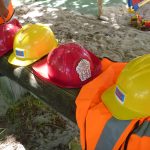
Research in brain development has taught us that play shapes the structural design of the brain. Play also provides active exploration that assists in building and strengthening brain pathways. When young children play they are allowed to explore, identify, negotiate, take risks and create meaning, children who engage in these experiences are more likely to have well-developed memory skills, language development, and are able to regulate their behaviour, which leads to enhanced school adjustment and academic learning. (Barblett, L. (2010). Why play-based learning? Every Child, 16(3), 4-5.)
Educators plan the environment to include a variety of provocations and invitations, based on children’s wonderings and needs and respond in the moment to the way children engage with those opportunities. Learning in enhanced through engagement with others in play
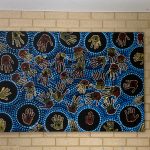
Canning Vale Prekindy is currently developing a Reconciliation Action Plan. We have been engaging with members of the Noongar community for the last 7 years to develop a curriculum that includes and celebrates First Nations culture, history and perspectives.
Noongar language is used throughout the program and Noongar artists, musicians and knowledge holders are invited to the service to share their knowledge and culture every year. Our director Lisa Vreeken is a member of Reconciliation choirs Madjitil Moorna and Walyalup Kannajil where she learn songs and Noongar language which she brings back to the program

A secure attachment between child and caregiver is critical to a child’s current and future well being. University-based research has shown that secure children have increased empathy, greater self esteem, better relationships with parents and peers, enter school more ready to learn, and are able to handle their emotions better than their less secure peers. – The Circle of Security Network
Educators at Canning Vale Prekindy work with parents to build safe, warm and secure connections with children both prior to their attendance in the program and in the very early days.
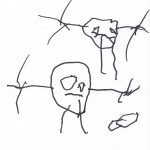
Canning Vale Prekindy is a community based, not-for-profit organisation managed by a committee of parents and community members
Each year committee members are elected at the Annual General Meeting.
Parents are involved in every area of the program and service including fundraising activities, busy bees, program assistance, sustainability actions, sharing of skills and more.
